
Most conferences and meetings are all about talking. The problem with just talking is that it can be difficult to measure the impact your event is making. You might come away wondering if all the effort really achieved anything tangible once the participants have disappeared back into the dark holes of their different offices. You might get some nice fluffy comments on your feedback forms, but nothing you can point to and say “That happened because of MY event!” If you're looking for an event format that can help you change the world, a hack event might be for you…
What is a Hack Event?
A hack event gathers together developers, designers, users and people with great ideas to build useful things. The term originates from the software programming community, where “hacking” simply means rough-and-ready rapid development, usually to prove a concept, rather than anything more sinister. Hack events usually have a specific theme, only a few invited speakers to inspire everyone, and a lot of hands-on time building solutions to real-world problems. Participants are encouraged to share ideas, team up with others whose skills complement their own and create something of real value. This might involve producing working software or a paper prototype demonstrating how a solution might work. These solutions are usually showcased at the end of the event, and there may be prizes offered by event sponsors for the most innovative. Hack days have been organized by some big names, including Yahoo! Lonely Planet, BBC, and Google.
How to structure a successful Hack Event
You don't have to be a techie to organise a hack event. In fact, the most successful hack events only involve around a third of the audience having any experience of writing code. However, you do need to be a strong facilitator to help groups form around the best ideas, and be a keen motivator to keep everyone going. Hack events usually take place over 48 hours and it's not uncommon for people to stay up until the early hours of the morning working on their chosen project. If the idea of organizing an event that produces real, practical solutions appeals to you, then follow our ten top tips for organizing a successful hack event…
- Choose a hot topic with some really meaty problems that are ripe for solving. This is your event problem space.
- Invite a good mix of practical developers, users and subject experts to get a wide range of perspectives. Developers tend to gravitate towards events with the word “hack” in the title, whereas you will need to put a bit more effort into recruiting users and subject experts by explaining what you hope the event will achieve and the opportunity it provides for them to work with people who could solve their problems.
- Choose some inspirational speakers to kick off your event.
- Promote some seed ideas in advance of the event and encourage discussion via social media to help get participants thinking about the issues and considering problems they might want to solve during the event.
- Make sure the end users within your chosen problem space are strongly involved in the pre-event discussions and in the opening talks to help guide the process as much as possible. Solutions need to fit the needs of the users, so their voices need to be powerfully represented in any successful hack event.
- During the event, provide some structure, but not too much. You need to let people move around, discuss issues with different people and form new groups as new ideas occur.
- Provide a flexible environment for participants throughout the event, including on-demand refreshments and no formal “kick out” time, so participants can keep working as long as they want.
- Provide sticky notes and an “ideas wall” to help share ideas. Make sure everyone puts their names on their ideas so that people can hook up.
- Be a strong facilitator: Know the skills and interests of everyone present so you can make appropriate introductions and motivate people when they hit a brick wall. You don't need a strong understanding of the technology, you just need to be able to help people break down a problem into manageable chunks and help them to identify what is achievable in the time frame.
- Provide plenty of opportunities to feedback so everyone is aware of what others are working on, in case they can offer some expertise. Relaxed, open debates work better than formal presentations and encourage others to chip in.
What to do with the outcomes of your Hack Event
At the end of your hack event you'll need to provide time for each group to present the results of their efforts. It's important to record these outcomes and promote them after the event so that they can be taken forward and developed further. Attracting event sponsors who may be prepared to fund some of the ideas after the event can help with this. During the presentations, ask the participants what needs to happen next to get their solution into the hands of the people who actually need it, and follow up with them later to find out whether it worked out. Collecting the case studies in this way will provide you with some really clear evidence that your event was successful and made a practical difference to the community it served.
Benefits of a Hack Event
The hack event format can be used for networking events that gather together strangers with a shared common interest, or for internal company meetings to kick start the next product development. The outcomes are not always clearly-defined products, but can simply be a solution to a specific problem that someone had previously spent weeks researching. However, the emphasis on practical problem solving makes the hack event a valuable format, ideally suited to situations where you need to demonstrate impact. To be truly successful, the hack event needs the strength of the event organizer to get the right mix of people together in a room and create the right environment for them to innovate. This can be a challenge, but if you want to help change the world, you have to starts somewhere… 😉
Photo by Harry Metcalfe

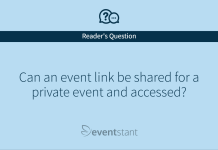
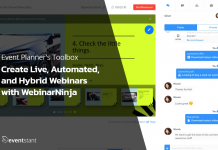
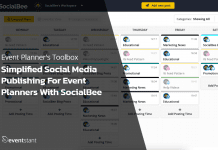
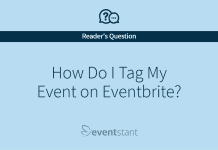
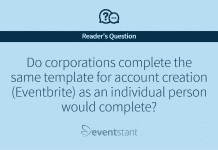



![How Important Are Face to Face Meetings [INFOGRAPHIC]](https://eventstant.com/wp-content/uploads/faceToface_v11-sm-218x150.jpg)









